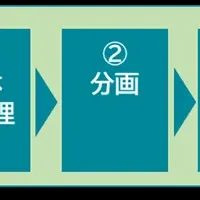
Amgen and Kyowa Kirin Announce Promising Results for Rocatinlimab in Treating Atopic Dermatitis
Amgen and Kyowa Kirin's Rocatinlimab Study Yields Promising Outcomes for Atopic Dermatitis
In a significant stride towards addressing chronic skin conditions, Amgen and Kyowa Kirin have made an announcement regarding their ongoing Phase 3 clinical trial program, known as ROCKET, which focuses on the investigational therapy rocatinlimab. This treatment targets the OX40 receptor and aims to provide relief to adults suffering from moderate to severe atopic dermatitis (AD).
Significant Study Findings
The ROCKET trial's IGNITE study was designed as a 24-week randomized controlled trial, which incorporated both a placebo control and a double-blind methodology. The study assessed the efficacy, safety, and overall tolerability of rocatinlimab administered as a monotherapy every four weeks among 769 adult participants. Notably, the study achieved its co-primary endpoints alongside substantial improvements in key secondary endpoints, demonstrating the effectiveness of rocatinlimab at both evaluated dosages when compared to placebo.
Specifically, results indicated that at week 24, over 42% of participants in the higher dose group reached a greater than 75% reduction in their Eczema Area and Severity Index (EASI) score from their baseline values, showcasing a compelling 29.5% advantage over the placebo group. The lower dose group also reflected significant findings, with 36.3% of individuals obtaining similar results, which is also considered statistically significant.
Furthermore, measures on the validated Investigator's Global Assessment for Atopic Dermatitis (vIGA-AD) demonstrated that approximately 23.6% of subjects in the higher dose sector achieved scores reflecting either clear (0) or almost clear (1) skin by week 24. This, again, highlights a stark contrast against placebo results, illustrating a 14.9% difference. The lower dose witnessed a respectable 19.1% of patients meeting the same criteria—an excellent indicator of the treatment's effectiveness.
Safety Profile and Next Steps
Overall, safety findings from the trial were consistent with previous observations concerning rocatinlimab. While adverse effects were noted, the most prevalent of which included occurrences of fever, chills, and headaches, it is worth mentioning that gastrointestinal ulcerations were also documented but occurred in less than 1% of the participants. Jay Bradner, M.D., Amgen's Executive Vice President of Research and Development, expressed optimism about the outcomes of the ROCKET trial, emphasizing the need for advanced treatment options for individuals grappling with debilitating symptoms associated with their conditions.
Consequently, the ASCEND trial is positioned to examine the long-term implications of rocatinlimab extending beyond the initial 24 weeks while further investigating aspects of clinical response maintenance as treatment progresses or is withdrawn. The ongoing efforts encapsulate additional studies such as ASTRO and ORBIT, aimed at assessing rocatinlimab’s effects on adolescent patients.
The extensive ROCKET program is a vital collection of eight studies that builds a comprehensive safety and efficacy profile for rocatinlimab, not just among adults, but adolescents as well. The program is enriched with findings from the SHUTTLE and VOYAGER trials that enhance the understanding of this promising treatment.
Understanding Atopic Dermatitis
Atopic dermatitis, a prevalent form of eczema, engenders uncomfortable symptoms marked by excessive dryness and itchiness, which may interrupt the daily lives of those suffering from it. Research underscores that T-cell imbalance is a central issue at the heart of atopic dermatitis, contributing to the aggravation and recurrence of symptoms that patients often experience.
As the world increasingly recognizes the impact of dermatitis and other severe skin conditions on patient quality of life, therapies like rocatinlimab represent hope for those battling these challenging chronic ailments. The anticipated subsequent revelations stemming from the ROCKET study promise to contribute significantly to the realm of dermatological care, introducing a potential therapeutic innovation that could revolutionize treatment paradigms in the field.
Conclusion
Amgen and Kyowa Kirin's collaborative efforts illuminate a path forward, potentially helping countless individuals who struggle with moderate to severe atopic dermatitis. Their shared commitment towards research and patient outcomes fosters a sense of hope for innovative treatments that can alter the landscape of therapeutic options available and improve the quality of life for many. With more findings expected from additional studies, physicians and patients alike maintain a vigilant approach to this evolving narrative in eczema management.
Topics Health)










【About Using Articles】
You can freely use the title and article content by linking to the page where the article is posted.
※ Images cannot be used.
【About Links】
Links are free to use.